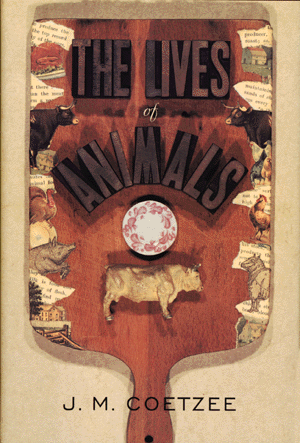This is a very cool article. Frightening no doubt; but the public has a lot of people on its side in this, even if the establishment tries to cast them in a criminal light.
If the post-9/11 world has exacerbated an already fragile human existence, it has also afforded us some positive disenchantment, and not only in the technological sphere. 9/11 put the kibosh on Fukuyama's "end of history." It threatens the holy sanctity of the Western analytic philosophical tradition, and has opened a space for new speculative criticisms, including cyberpunk, which finds its space more in fiction, but it has gradually been creeping into the critical work of people like N. Katherine Hayles and Reza Negarastani.
I heard a speaker at the MLA convention categorize the turn of the century in the following way (I'm elaborating a bit): he said that the late '80s and '90s were constituted by what academics call the "Cultural Turn," which was a form of ideology-critique encapsulated by Postmodernism and focused on "late capitalism." By contrast, the post-9/11 world is a world in which the dream of globalism persists despite the hideous remainder, or trace, left by the tragedy in 2001. This is a world in which the fantasy of free-floating capital has been proven unsustainable, but the perpetuation of its ideology (i.e. the ideology of late capitalism, or globalism, or global corporatism, etc.) encourages new critical forms, many of which are highly speculative (awkwardly mirroring globalism's own reliance on speculation). This has resulted in what's been dubbed the "Speculative Turn," a radical branch of Continental thought that eschews Postmodernism and its method of ideology-critique, and focuses on "late late capitalism," or techno-globalism, or (what one critic hilariously calls) "oh shit" capitalism.

Besides the political and the philosophical, the post-9/11 world also opens new directions of literature. The "lyric realism" of the French elites - Balzac, Flaubert - and the great English novelists - Dickens, Austen, etc. - has been exposed as insufficient and archaic. The briefly popular alternatives of the 20th-century - Robbe-Grillet, Pynchon, McCarthy, DeLillo, etc. - have been shown to be
more than just attractive blips on the radar. They are predecessors of a new and quickening style, which can also be seen appropriating the SF underground. A style of un-realism, of anti-humanism, and of skepticism.
I'm talking about the feeling, not the abstract [understanding]. Feelings do not require an instantaneous label.
Well, I can't keep up with you if you keep changing what you say.

A few posts ago you explicitly said "abstract thought."
I don't think you're following this logic anyway; once you've labeled something as "love," it no longer corresponds to that original, primordial feeling you're retroactively identifying. That's why I mentioned Heisenburg; once language intervenes in the "system" of biological sensation, it alters that system. What you call "love" doesn't actually correspond to any previous feeling humans might have felt before the advent of consciousness and language.



